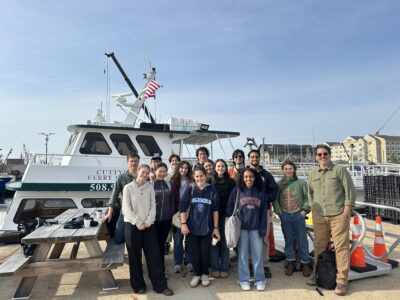Sustainability
-

Alumni Spotlight: Bridging Science, Policy and Strategy for Climate Action
Tiffany Wu, a graduate of the MPA-ESP program, now works on climate and sustainability projects spanning carbon markets, corporate greenhouse gas accounting and clean energy.
-

Sustainable Development Program Awards 2025 Departmental Honors
Four graduating students were selected for their outstanding academic achievements in sustainable development.
-

Recognizing Excellence: Two Students Awarded Stuart Gaffin Prize for Sustainable Development Leadership
Harrison Gerson and Emine Taha exemplified the spirit of service, leadership and community engagement during their four years at Columbia.
-

How AI Is Revolutionizing the Recycling Industry
Modern waste facilities are incorporating AI into their systems, using robots guided by AI vision systems and machine learning algorithms, high resolution cameras, hyperspectral imaging, near-infrared sensors and predictive analytics.
-

Leveraging the Power of Open Source Data To Map the World’s Oceans
In honor of World Oceans Day, marine geophysicist Vicki Ferrini discusses the current state of ocean research, and the important role international collaboration plays in this field.
-

Playing With Fire: Harnessing Lava To Build Sustainable Cities
A futuristic new project imagines the possibility of molding lava into building material, thereby reducing the carbon emissions associated with construction.
-

Gen Z Leads the Call for Conservation With TreeTalks
Two MPA-ESP students hosted a film screening and discussion on rainforest conservation and the role of young people in shaping its future.
-

A Small Island Offers Big Lessons in Sustainability
Columbia undergraduates spent three days learning about sustainable development on a local scale and immersing themselves in life on Cuttyhunk Island.
-

Columbia Beautiful Planet 2025
Each year, we honor Earth Day by sharing some amazing photos celebrating the beauty and magic of our planet, as captured by the Columbia community.

